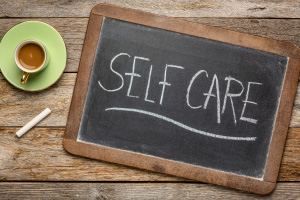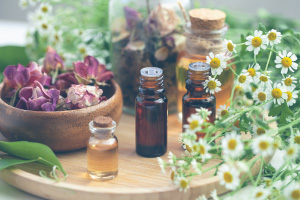

As the cold months of January and February melt into a more acclimating warmer March, we are forced to replace our comforting blankets and hot drinks with colours and outdoorsy activities. Springtime has always been glorified among poets, romanticists. and media as a time for rejuvenation and having fun. But what if you don’t want to? What if you feel anxious making plans and the seasonal depression is taking a deadly grip on you?
Mental Disorders During Springtime
Listed below are the common disorders that people tend to experience during this time of the year:
1. Mania
A constituent of a psychological disorder called bipolar disorder; mania is most likely to exaggerate during spring. Symptoms include fast talking, insomnia, a distracted mind, irritation at small things, impulsiveness, and feeling of extreme motivation and goal-orientation.
2. Suicide
Studies have shown a rapid increase in the rate of suicides during the spring months. This is a cause for concern for many suffering from mental illness that goes undetected, resulting in the loss of life.
3. Seasonal Affective Disorder
The spring months can usher in several festivities, blooming flowers, and chirping birds along with your daily dose of Seasonal Affective Disorder (SAD). It is a mental disorder that can cause both depressive episodes and cases of mania and anxiety. The symptoms include binge-eating, lack of energy, low self-esteem issues, and lack of dopamine and serotonin.
Steps Towards Mental Hygiene
Spring months can quickly become hectic and overwhelming and the transition from a quiet and peaceful winter often leaves one in a frenzy. Situations like not wanting to be a part of social situations but feeling left out by seeing the fun pictures after may make one feel lonely or jealous.
Here are some ways to maintain your mental hygiene in these trying times:
- Mental Hygiene is equally important as physical hygiene. It means taking time to process your emotions, overflowing thoughts, or certain situations. You can book a longer appointment with your therapist to talk about your feelings or can simply write out your burdened emotions onto a piece of paper to feel lighter.
- Many experts recommend making two lists. The first one contains things you can control in your life right now and the second is things that are not under your control. Take your time to figure out how to better seek out whatever is under your control and let go of anything that isn’t.
- Clean your space. Whether it is your room or your work space. Cleaning always makes you feel motivated and helps declutter your mind.
- It is okay to rest. It is okay to grieve over people or opportunities you miss. Allow yourself this springtime to feel emotions deeply instead of feeling the need to chase temporary joys.
- Read books or dive into anything that is recreational. It can be painting, reading, or pottery. You can also listen to mental health podcasts or watch movies that are not too intense.
Foods That can Boost Your Mental Health
What you consume has a great impact on how you feel. Fatty foods filled with carbohydrates can make you feel lethargic. Here’s a list of healthy foods that promote mental well-being:
1. Nuts
They are a great source of Omega 3 and fatty acids and can help in elevating depressive episodes. Cashews provide extra oxygen to your brain along with magnesium. Nuts also have properties that are known to produce dopamine and neurotransmitters in your brain. They also aid in preventing Parkinson’s disease.
2. Yoghurt
You can have yoghurt in many ways, including oats and fruits. The probiotics in yoghurt reduce anxiety and stress by ensuring better digestive health. It also provides magnesium and potassium to your body.
3. Tomatoes
Tomatoes help prevent brain diseases; induce cell growth; and may enhance memory, concentration, and logical skills. The antioxidant in tomatoes, lycopene from the red color, is an essential nutrient.
4. Whole Grains
Whole grains like beans, soy, oats, and rice help provide energy for you to function. These are considered complex carbohydrates that increase glucose levels, act as a source of stable energy, and reduce symptoms of depression and anxiety. When paired with chicken or other protein, they make for a healthy and balanced diet.
5. Dark Chocolate
Made from pure cocoa, dark chocolate contains flavonoids – an antioxidant that helps boost attention, memory, and cognitive skills. It can act as a mood uplifter and does not give you a sugar rush. However, this must be consumed in appropriation.
Conclusion
Having mental health awareness allows one to help themselves and others in trying times. Don’t let the notion that springtime is a period of new beginnings affect you negatively. It is important that you take it one day at a time rather than forcing yourself into things you are not ready for.




